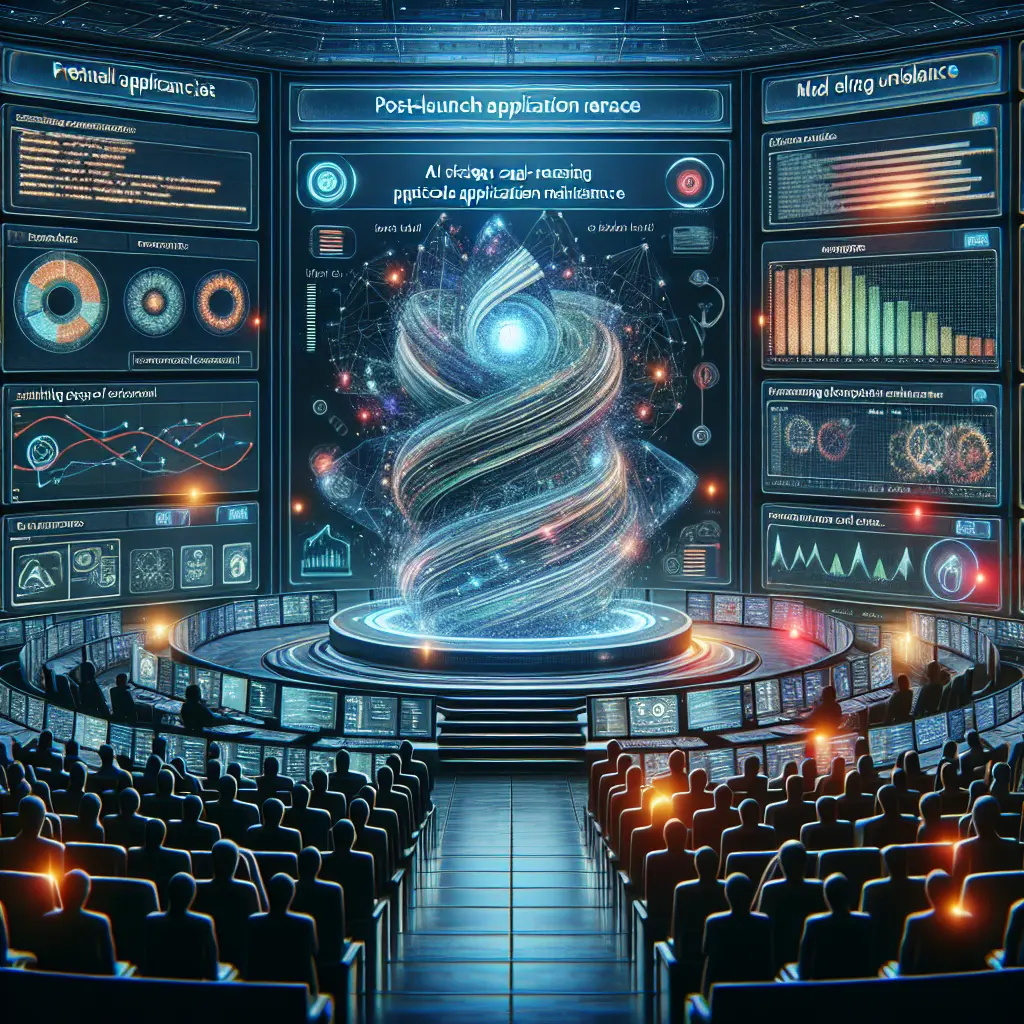Introduction: Merging Mobile App Development and AI
Investigating the symbiotic relationship between technologies like artificial intelligence (AI) and mobile app development, it’s clear that the future of tech lies beyond our smartphones. AI has revolutionized the realm of software development—particularly apps. More than ever, companies utilize AI to enrich user interactions and enhance personalized experiences. No wonder, according to interesting data from Statista, the revenue from AI platforms is predicted to grow from $10.1 billion in 2018 to a staggering $126 billion by 2024–indicating a corresponding escalate in mobile app development ass well. The numbers reflect a technologically-driven future, and the impact of AI in creating intricate and tailored user experiences is undeniable. The ‘people-centric’ approach that AI offers marks the departure from one-size-fits-all solutions, enabling apps to learn and adapt to personal preferences. This degree of customization was previously unimaginable but is now an integral part of the user experience. Amidst the AI and app development boom, there’s an exceptional growth opportunity for businesses. To this end, Forbes underlined that businesses that don’t embrace AI may be left in the technological dust.
AI-Driven Design Improvements: Revolutionizing UI/UX
As technology continues to evolve and progress, we are about to witness major advancements and shifts in User Interface (UI) and User Experience (UX) design. Artificial Intelligence (AI) tools are emerging as a game-changer, causing a radical enhancement in the design capabilities of developers. They can now construct more intuitive, user-friendly mobile app designs, that aren’t just easier to use, but also feel natural and engaging. By factoring in AI’s predictive design capabilities, developers can save substantial time as it foresees user behavior and generates responsive design attributes accordingly. AI’s contribution extends beyond just creating visually enticing designs. It is gradually transforming the paradigm of UI/UX design, making it more iterative and data-driven. The staggering figure of a projected eleven-fold increase in the revenue from AI platforms from 2018-2024, which is predicted to reach a whopping $126 billion, adds weight to this fact.
AI Powered Testing: A New Era of Quality Control
Continuing with the theme of artificial intelligence (AI) in application design, one significant area is the world of AI-enabled testing and quality assurance (QA) inspections.
Utilizing AI for App Maintenance Post-Launch
In the rapidly evolving realm of mobile application development, AI emerges as an architect of the future, carving out streamlined and efficient pathways for post-launch app maintenance. Artificial Intelligence (AI) assumes an instrumental role in predicting and pre-empting potential glitches or disruptions, thereby facilitating a smoother, enhanced user experience, as elucidated in a notable Insider Intelligence article. Machine learning algorithms, a critical facet of AI, leverage user data to identify trends and anomalies. With this information, comprehensive reports forecasting probable crashes or errors are generated, allowing developers to proactively avert such issues. Consequently, precious resources and time are reallocated from troubleshooting to innovative product improvement. A recent McKinsey report discloses that approximately 30% of developers’ time can be reassigned to innovation with this proactive approach. Moreover, AI’s predictive and analytical prowess extends beyond error prevention. It serves up useful suggestions aimed at enhancing app functionality and user experience. For instance, if users frequently exit an app at a particular point, AI could suggest a design modification to retain users for longer durations. To sum up, AI-driven algorithms are undeniably revolutionizing the mobile app landscape. From streamlining post-launch maintenance to proactively embedding improvements for seamless user engagement, AI is becoming a ubiquitous, transformative force for mobile application developers.
Conclusion: Embracing AI’s Influence on Mobile App Development
As we approach 2024, the influence of AI on mobile app development has transcended from a predictive trajectory to a transformative reality, and its monumental impact continues to gain momentum. The previously unseen acceleration in development cycles coupled with a noticeable rise in app performance and UX are, in no small measure, owed to the pervasive influence of AI. Data compiled from a Harvard Business Review study shows that using AI algorithms can expedite the software development lifecycle by a staggering 30%. This compaction of the timeline liberates valuable time and resources, enabling developers to allocate a larger chunk of their efforts towards fostering innovation. Adding fuel to the argument favouring AI adoption, numerous studies and field reports reveal that Artificial Intelligence plays a crucial role in enhancing app quality. As highlighted in a recent TechCrunch article, AI-powered apps outperform their traditional counterparts by approximately 50%, in terms of both functionality and user engagement. The reason, staggeringly simple: AI’s innate ability to predict and preempt errors. This predictive capability cultivated by AI, when utilised shrewdly, transforms the app maintenance and optimisation process into a proactive rather than reactive activity.